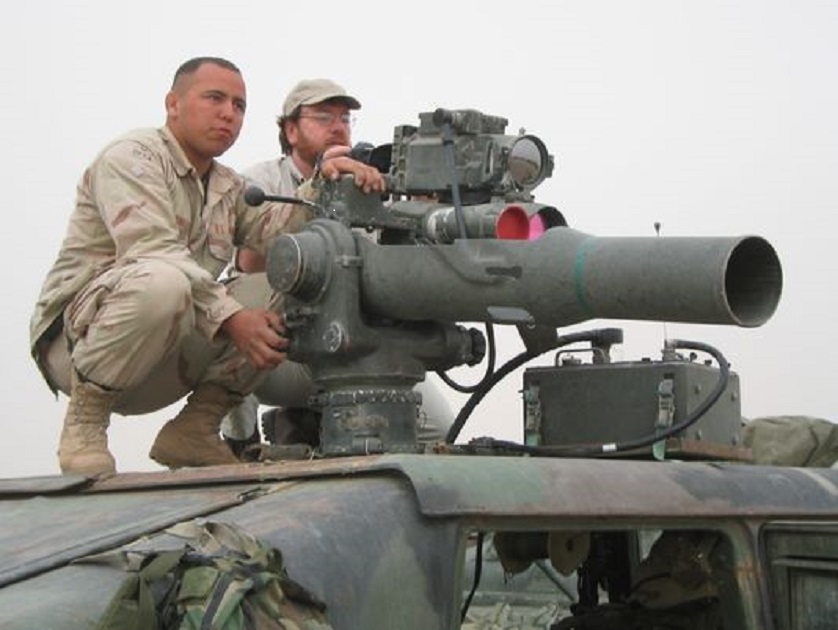
(USA TODAY) – American-made anti-tank missiles are surfacing in Syria as part of a “pilot program” to boost rebel groups but make sure the powerful weapons do not fall into the wrong hands.
The anti-tank missiles, called TOWs, are sophisticated weapons designed to kill enemy tanks and blow up reinforced bunkers.
The new program is meant to aid the rebels fighting the Syrian government’s armored forces but make sure the weapons don’t reach radical Islamist groups also fighting the regime of Bashar Assad, said a former senior government official who has been informally briefed on the program. The source spoke on condition of anonymity because he is not authorized to discuss intelligence matters.
“They will try this first and see how it goes” before expanding it, said the former official.
Rep. Mike Rogers, a Michigan Republican and chairman of the House Intelligence Committee, would not comment on specific weapons or types of support, but told USA TODAY there has been “a limited expansion” of support to rebel groups.
Military analysts say the presence of TOW missiles would not change the balance of power in Syria, where the Assad regime has blunted the momentum of rebels in many areas of the country.
“They are not a golden BB that is going to bring down a regime,” said Jeffrey White, an analyst at the Washington Institute for Near East Policy and a former Defense Intelligence Agency official.
The administration hopes, however, that by providing additional assistance to moderate groups it can strengthen those organizations at the expense of the radical Islamist militants, which are also battling Assad and which are growing in size and strength.
Rebel groups with battlefield victories and superior weapons will attract more funds and recruits, White said.
TOW missiles are guided by a gunner who keeps the sights on a target until the missile reaches it. They are large weapons that require a team to operate and typically have to be transported in a truck.
Ahmad al-Jarba, leader of the main opposition bloc, is in Washington this week, seeking additional support from U.S. leaders. Jarba also wants to convince Washington of the viability of the moderate opposition.
“We are committed to do our part to support the moderate opposition in its efforts to provide a legitimate voice to the aspirations and hopes of the Syrian people,” Secretary of State John Kerry said before meeting with Jarba on Thursday.
The war began more than three years ago as a broad-based revolt against the Assad regime.
In the past year, however, the opposition has fractured and Islamist radical groups have poured into the country, often overshadowing more moderate, secular groups. Eastern Syria has become a “jihadi Disneyland,” Rogers said.
Assad, meanwhile, has made some headway against the opposition groups in key parts of the country, including Homs.
The changes on the ground have complicated a U.S. response to the crisis. The United States now faces a twin threat from the growing presence of Islamic radicals and Assad’s regime, Rogers said.
“The longer this goes the less options they have,” Rogers said of the administration.
Rogers said the recent increase in support for rebel groups is modest and “more limited” than media reports would suggest.
Opposition groups have consistently sought anti-air weapons and anti-tank weapons in an effort to neutralize the advantages of Assad’s tanks and aircraft.
The United States has been reluctant to provide portable anti-aircraft missiles, fearing they could fall into the hands of jihadists and be used against U.S. targets. That reluctance is not likely to change, analysts say.
The United States provided portable Stinger anti-air missiles to the mujahideen fighting the Soviets in Afghanistan in the 1980s and many of them later ended up on the black market.
The TOW missiles will help militants target the regime’s tanks and armored personnel carriers.
Videos of the weapons have indicated that they are being used by militants in Idlib, a town near the Turkish border and Allepo, a strategic city in northwest Syria, White said. It is not clear how widespread they are.
The weapons and training required to operate them could be distributed by the Saudis or other Gulf Arab states, but it would almost certainly not happen without U.S. approval, analysts say.
“It’s more likely that this is cooperation among the United States and its allies,” White said.
Follow @jimmichaels on Twitter.













 e poi
e poi